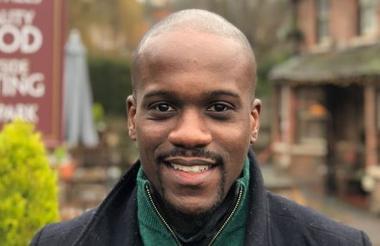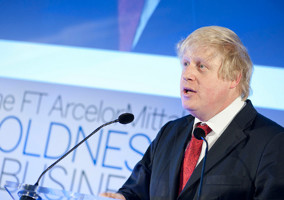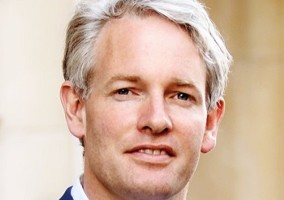It is “pure fallacy” to claim the government isn’t interested in a strong relationship with charities, according to a former special advisor to Boris Johnson.
Samuel Kasumu, who advised the prime minister on charities policy until April last year, told an event yesterday that “the majority of people in government” want to work effectively with the sector. He acknowledged that some people at the top of politics “have some challenges with civil society”.
He was speaking online at an event organised by the charity think tank NPC, alongside Clare Moriarty, chief executive of Citizens Advice, and NPC’s chief executive Dan Corry.
Kasumu quit his special advisor role over the government's handling of the Sewell report into institutional racism in the UK.
Yesterday, Kasumu also criticised the quality of data on the sector collected by the Charity Commission, which he said had improved significantly by the time he left his job.
He told the audience that he believed the Office for Civil Society (OCS) should be moved back from the Department for Digital, Media, Culture and Sport (DCMS) to the Cabinet Office.
Number 10 desire to work with charities ‘was always there’
“The first thing I noticed [after joining Number 10] is that there isn’t very regular, coherent dialogue with the sector,” Kasumu said. In response he set up regular meetings with leadership bodies including NPC and NCVO.
He insisted that, even when Downing Street was focused on the Covid-19 crisis, “the idea that we wanted to strengthen the relationship with civil society was always there. In my opinion we were always moving in that direction. I was always perplexed when people would say ‘Well, the government doesn’t want to have a good relationship with civil society’.”
He conceded that there were “some people [in government] who would get into a fight with their own shadow” but added: “That is not the majority of people in government. The majority of people in government are very keen, in my experience anyway, to have that relationship with civil society.”
Kasumu said later: “The idea that the government doesn’t want to have a good productive relationship with civil society is pure fallacy.”
Funding, ‘crap’ data, and culture wars
Asked why the relationship between government and charities was “not where it needs to be”, Kasumu suggested three ways to improve relations.
Firstly, he argued that the sector had been guilty of “a lack of coherence” at key moments.
Kasumu said that, during negotiations over the Covid-19 financial package for charities, when the sector estimated future losses at over £4bn, he told charity leaders: “The guys next door [at the Treasury] are probably interested in giving you less than a tenth of that, so why do you need £4bn? And there was just a lack of coherence around how the figure was arrived at.”
The eventual £750m fund was “still a lot of money”, he said, and argued that total support exceeded £4bn once all other forms of support for charities, were considered.
Secondly, the government has focused on improving data relating to the charity sector. Talking about the information held by the Charity Commission, Kasumu said: “When I arrived at No 10, the data was crap. There was nothing we could do with it,” although he added that it has now improved.
Thirdly, he urged charities not to “get distracted by noise” and to ignore what he called “stupid culture wars”. Later in the event, Kasumu added: “Charities have to pick which battles you want to be yours. So, for all the nonsense that is going on in Number 10, what does that have to do with a charity? To what extent is this your battle?
“At times you have to be very intentional about which hill you want to die on.”
Role of the Office of Civil Society
Kasumu also said that he had tried to bring charity policy closer to the centre of government.
The Big Society ideas introduced by David Cameron after 2010 “very quickly fizzle[d] out, maybe within 18 months”, he said, and “as a result you have close to a decade where there is a bit of a vacuum in the centre when it comes to having a coherent strategy for engaging with civil society”.
Kasumu said that shifting the OCS from the Cabinet Office to DCMS in 2016 was “quite a peculiar decision”, and that he had been “in the process” of trying to move charity policy back to the Cabinet Office before he left Number 10.
He said: “When things are in the centre, you are able to utilise the resource more effectively.”
Related news












